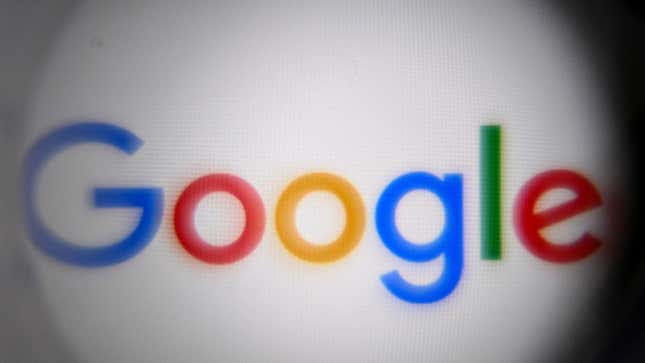
A collective of some 200 newspapers are suing Google and Facebook, alleging that the tech giants have unfairly manipulated the advertising market in ways that directly damage their publications.
The suits, which was first reported by Axios, are being handled by a unified front of lawyers and law firms, and have been filed on behalf of some 30 different companies. Those companies, in turn, represent about 200 separate newspapers spread out across the country. (Axios recently published a full list of publications that are involved.) The suits were recently consolidated in New York state—a process by which the “pleadings, judgments, and findings” of disparate but similar legal cases can be considered as one.
Using arguments that strongly resemble those made in a separate anti-trust suit filed by the Texas Attorney General last year, the legal volleys essentially accuse Google and Facebook of monopolizing the digital advertising market via illegitimate practices. They further seek to “recover past damages to newspapers,” basically asking for payouts commensurate with the money that’s been sucked out of the industry.
If the newspapers win, they could be entitled to significant remuneration via something called “treble damages”—which pay settlements that are three times the damages that have been proven, Axios reports.
“These companies are more powerful than Standard Oil in its heyday, so no one wants to be the first to take them on,” said Doug Reynolds, managing partner of HD Media, one of the companies suing. In a recent interview with the Wall Street Journal, Reynolds revealed: “We felt the political and legal climate have moved in our favor and are ready to go ahead.”
Such discontent shouldn’t be too surprising since, as you’re probably aware, newspapers haven’t been doing so well lately. A Pew Research study from last year showed that the industry’s ad revenues declined by a staggering 62% over the past decade, dropping from $37.8 billion in 2008 to $14.3 billion in 2018. Meanwhile, newsroom employment halved, while circulation sizes similarly shriveled up—with weekday papers dropping from a total circulation of more than 50 million in 2007 to some 28 million by 2018.
Companies like Google, meanwhile, have been making a killing—largely through ad revenue. In 2020 alone, the company’s parent company Alphabet made a reported $183 billion—of which, more than 80% came from its advertising business, CNBC reports.
Of course, Google doesn’t see a direct correlation between its success and the decline of journalism in America. When reached for comment by Gizmodo, a Google spokesperson provided us with the following statement:
“These claims are just wrong. The online advertising space is crowded and competitive, our ad tech fees are lower than reported industry averages, and publishers keep the vast majority of revenue earned when using our products. We are one of the world’s leading financial supporters of journalism and have provided billions of dollars to support quality journalism in the digital age.”
It’s true that Google throws a lot of money at journalism fellowships and other news-related initiatives, though it’s probably a pittance in comparison to the ad revenue that papers had in a pre-Google world.
Having personally worked for a regional newspaper for several years, I can attest to how difficult things are at your average publication: In many cases, the wages are shit, morale is low, layoffs are routine, and they’re just barely keeping the lights on. Whether these lawsuits are successful or not, they are certainly drawing attention to a significant issue, which is how little money is rattling around in the journalism industry these days.
We reached out to Facebook for comment and will update this story if they respond.